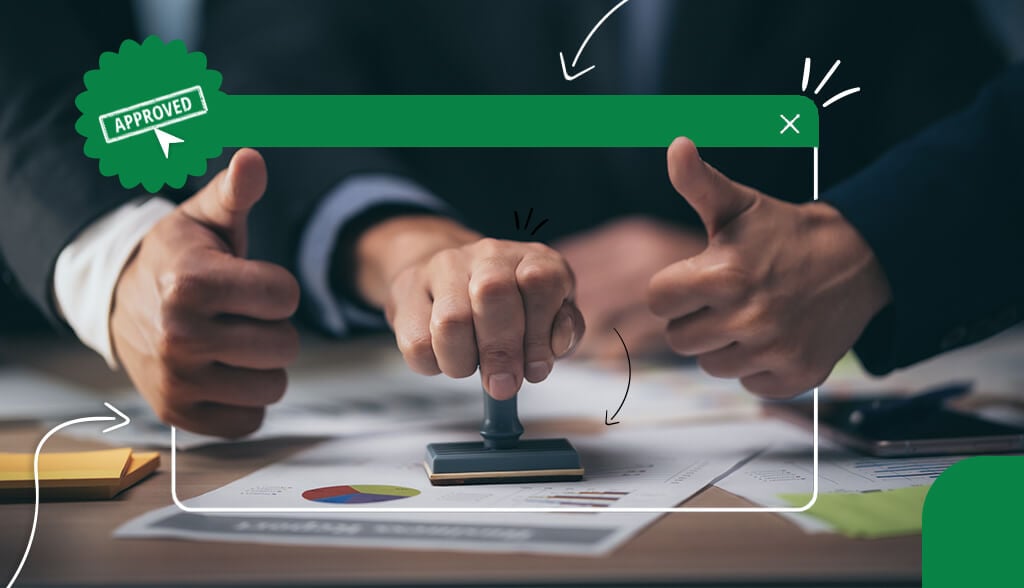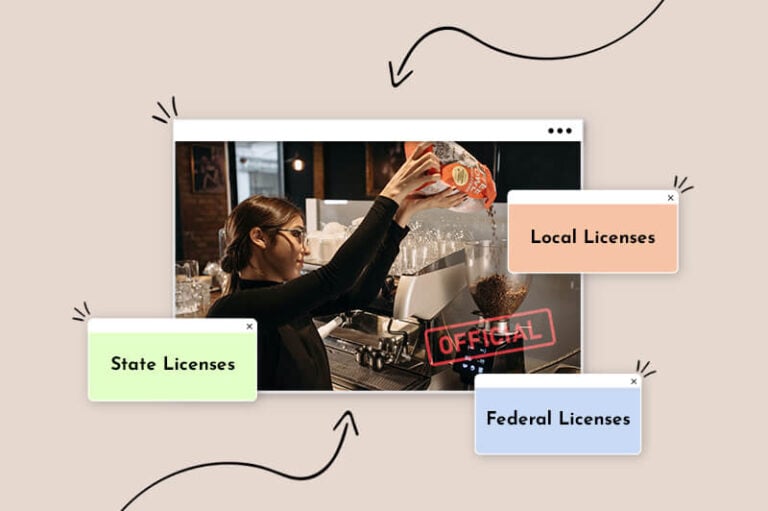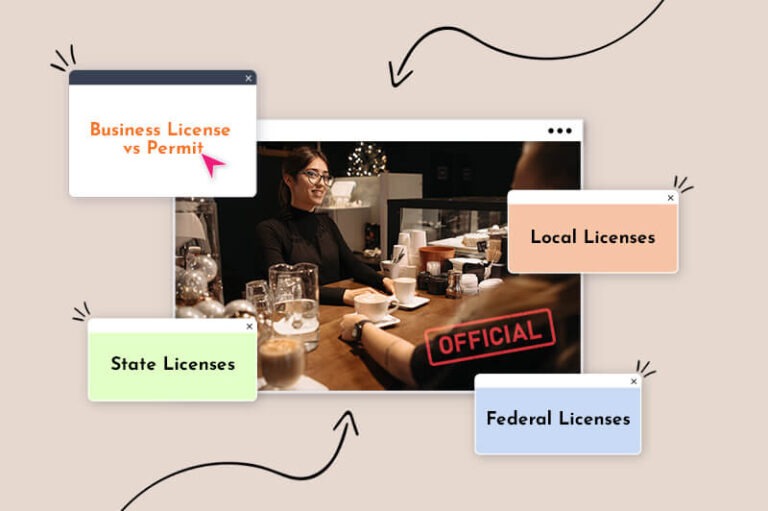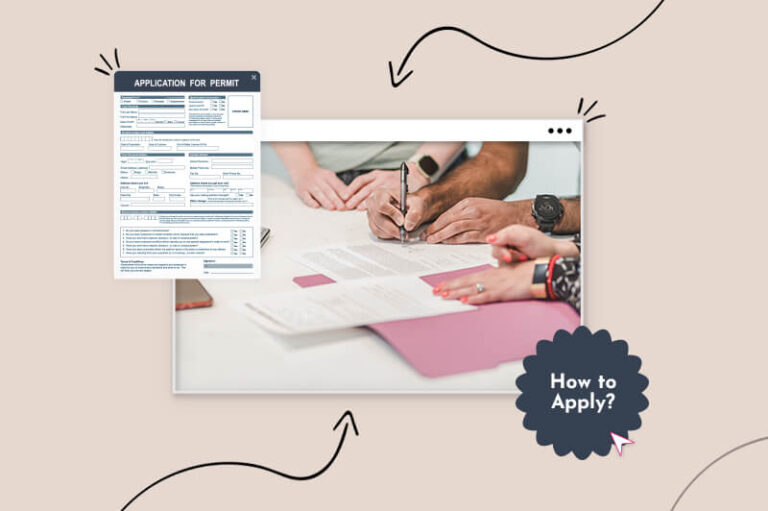
The difference between business licenses and permits often confuses new business owners. That makes getting them a bit of a challenge.
The problem is, if you don’t have the right ones, you could find yourself in hot water with local, state, and federal agencies.
In this post, I’ll explain the difference between local, state, and federal business licenses and permits. I’ll also tell you how to get a business license and permit once you’ve got your LLC formation in place.
All you have to do is sit back, relax, and read.
A business license describes any license you might need to provide a service, sell a product, and operate your business in your location.
A business license’s purpose is to ensure you know and follow industry regulations. The licenses you’ll need depend on several factors, such as your business type, industry, location, business structure, and specific business needs.

To operate your business and sell your products or services, you might need to get one or more business licenses at the local, state, or federal levels. Here are the different types of business licenses you might need:
Almost all businesses need a general business license from their local city or county government to operate within their jurisdictions. Local licenses are usually easy to get and come with a fee.
When operating a business in multiple cities or counties, you might need local business licenses for each location and your primary business address.
Your state might require you to have a business license at a city and county level, so check local regulations by contacting your Secretary of State’s office, the Department of Revenue, or your local city or county clerk’s office.
A state business license is a state-issued government document proving your business is registered for taxes and allowed to operate throughout that state; industries that require these licenses vary from state to state.
But there are several businesses that require a state occupational license regardless of their location.
Certain businesses need special occupational or professional licenses from their state before operating, such as accountants, lawyers, child/daycare facilities, and establishments serving food or alcohol.
Other state business licenses include:
You can visit your official state government website or research the CalGold website (California state for example) to find out more about state license requirements in your location.
The U.S. federal government requires businesses trading in specialized industries to get a federal business license. Sectors that fall into the federal business license category are:
The Small Business Association (SBA) provides a comprehensive list of federally regulated businesses and the government agencies’ contact details where you can apply.
Permits are additional legal documents that allow you to provide or sell a specific service or product.
For example, if you run a restaurant, you’ll need the business license that governs your industry. Your city or state might also require you to get fire department, health, building usage, and signage permits.

Licenses are essential for starting your business, while permits are required to run it.
Licenses are usually permanent or long-term with few restrictions. In contrast, permits are temporary, need frequent renewal, and are more restrictive.
Permits vary between states, but some apply throughout the U.S., such as construction and land use, building use, signage, parking, the sale of cannabis or alcohol, and natural resource usage.
Permits also fall under local, state, and federal jurisdictions; the following lists are the most common.
State permits provide your business with approval to conduct land-disturbing activities, sell products, and provide services within your state.
Federal permits and licenses are often the same things, so if you have one you usually have the other. The same rules and regulations apply to federal permits as licenses and the businesses that need them. Here’s a quick recap:
You can find more regarding federal permits on the U.S. Small Business Administration website.
Before you can apply for any licenses or permits, you must first determine the ones your business needs. You can find those answers through:

Getting a business license or permit varies depending on the type you need and your location. Government agencies issue licenses and permits at the city, county, state, and federal levels.
You can apply for most local and state business licenses/permits online, post, or at relevant government offices. But you must apply for a federal license online via the government agency e-permit or e-file system.
Some states require you to include your tax ID number when applying for a local business license.
Sole proprietors and single-member LLCs without employees can use their Social Security Numbers (SSN) instead of a tax ID number. Still, all other business entities could need a federal employee ID number. You can get an EIN online through the IRS website.
EIN or SSN in hand, visit your city/municipality business permit and licensing office, fill out all relevant application forms, and pay the taxes and fees.
All states have official websites where you’ll find business licenses and permits, and while they’re all different, most are similar in how they work. For example, if you own an LLC in Florida and need to obtain them, you’ll find business licenses and permits on the state’s website in 5 steps:
1. Click on permits and licenses
2. Choose and click the relevant license and permit
3. Follow the link
4. Download the application
5. Submit your application along with any documents and fees
You apply for federal licenses by contacting the agency relevant to your business and industry. You can find a complete list of federal agencies with contact details on the U.S. Small Business Administration (SBA) website.
Hopefully, everything regarding business licenses and permits is clearer now.
For local business licenses and permits, contact your town hall or city clerk’s office, all of which you’ll find online.
For state licenses and permits, contact your Secretary of State or county clerk’s office, also available online.
And for federal licenses and permits, apply with the appropriate departments via the SBA website.
This portion of our website is for informational purposes only. Tailor Brands is not a law firm, and none of the information on this website constitutes or is intended to convey legal advice. All statements, opinions, recommendations, and conclusions are solely the expression of the author and provided on an as-is basis. Accordingly, Tailor Brands is not responsible for the information and/or its accuracy or completeness. It also does not indicate any affiliation between Tailor Brands and any other brands, services or logos.
Products
Resources
@2024 Copyright Tailor Brands